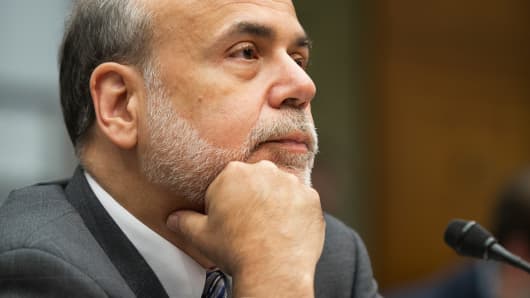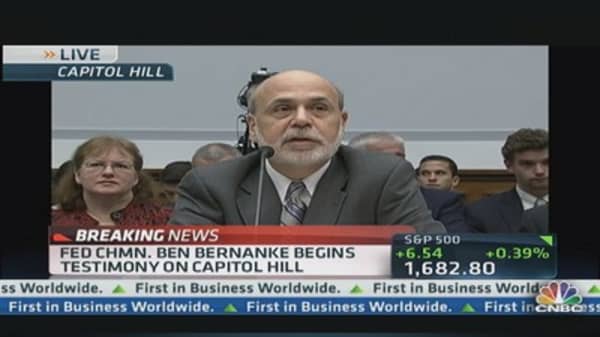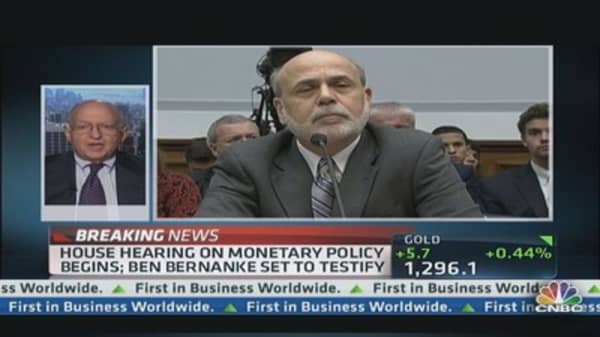Federal Reserve Chairman Ben Bernanke said the central bank anticipates beginning tapering bond purchases later this year but that policy will remain accommodative and could change depending on the incoming economic data.
In his semiannual monetary report before the House financial services committee, the Fed chairman said, "With unemployment still high and declining only gradually, and with inflation running below the Committee's longer-run objective, a highly accommodative monetary policy will remain appropriate for the foreseeable future."
Bernanke said that if the incoming economic data confirms a strengthening labor market and inflation moving back toward the central bank's 2 percent target, "We anticipated that it would be appropriate to begin to moderate the monthly pace of purchases later this year."
But he emphasized that this plan is not "a preset course" and could be changed depending on the incoming economic data.






